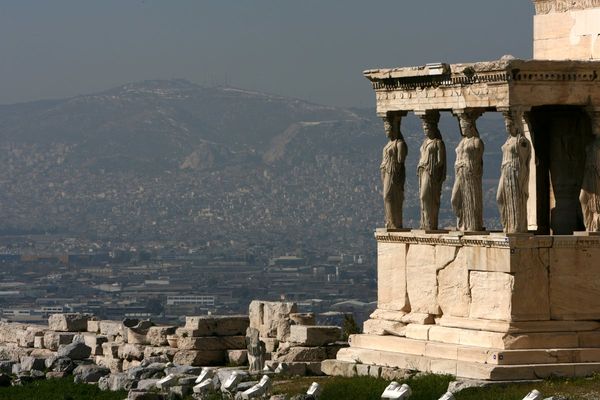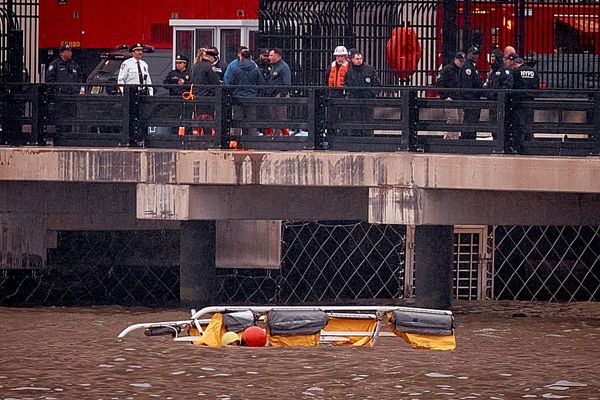An elite soldier has told a Sydney court war veteran Ben Roberts-Smith threatened to "shoot me in the back of the head" if his performance didn't improve.
Mr Roberts-Smith is suing The Sydney Morning Herald, The Age, The Canberra Times and three journalists over several stories published in 2018.
The Victoria Cross recipient denies allegations in those stories of unlawful killings in Afghanistan, bullying of his Special Air Service Regiment (SAS) colleagues, and domestic violence against a woman in a Canberra hotel.
An SAS witness, called by publisher Nine Entertainment and codenamed Person 1, on Thursday told the Federal Court of his first deployment with the SAS in Afghanistan in 2006.
Person 1 detailed a mission in the Chora Valley in June that year, where he was manning an observation post on a steep hill with a colleague.
He said they saw an unarmed young man about 78 metres away look in their direction, walk a short distance, and walk back carrying a satchel.
Person 1 told the court he believed the man hadn't seen them and he didn't want to compromise their location, however Mr Roberts-Smith and another colleague, Sergeant Matt Locke, moved down and shot the person.
The court heard the patrol then began to receive enemy fire.
Later that evening, Person 1 began to shoot at what he thought was movement, but his machine gun suffered several "stoppages" due to a lack of oil.
He admitted he had forgotten to bring the weapon's oil.
Over the next month, Person 1's performance reviews included various criticisms which he accepted were legitimate professional feedback from superiors.
But Person 1 claimed after the Chora mission, his relationship with Mr Roberts-Smith "got worse", including aggressive verbal attacks.
He told the court Mr Roberts-Smith once made a comment in a team room that left him in fear for his personal safety.
"[He] said words to the effect of 'if your performance doesn't improve on the next patrol, you're gonna get a bullet in the back of the head'," Person 1 said.
"What did you understand him to mean?" Nine's barrister Nicholas Owens SC asked.
"That he was going to shoot me in the back of the head on the next patrol if my performance didn't improve," the witness replied.
Person 1 reported the comment to his troop commander and said Mr Roberts-Smith later approached him.
"[He] looked down at me and said 'if you're gonna make accusations, c***, you better have some f***ing proof'."
The witness also claimed Mr Roberts-Smith would spit on the ground in front of him while they passed one another and slammed doors in his face.
The court heard the soldier's poor performance reviews were confined to "a few months" in the middle of 2006, however by 2008 he was being praised for his common sense and good judgement.
The witness attributed this to a change in team leaders and training.
Mr Roberts-Smith gave evidence about Person 1 last year and denied bullying, berating, punching or abusing him.
Mr Roberts-Smith said Person 1 "just wasn't a very good soldier" and was attempting to "cover up his poor performance".
Person 1 recalled another occasion outside an equipment room where Mr Roberts-Smith passed him.
"He pushed me squarely in the chest plate and said 'get out of the way c***, or I'll kill you'," he told the judge.
Mr Roberts-Smith has denied making that remark.
The court heard Person 1 sought to make a complaint about Mr Roberts-Smith's continuing poor behaviour towards him in 2013 and asked up to 10 comrades for statements about what they'd observed over eight years.
But he said only four followed through and he didn't pursue the complaint due to a lack of support.
"When it came to reality that people weren't prepared to make a statement against [Mr Roberts-Smith]."
Person 1 said during a mediation session, Mr Roberts-Smith claimed the behaviour wasn't inappropriate and was "all my fault because of my poor performance".
He told the court he believed being a young SAS trooper was "the best job in the world".
"I believe the actions of [Mr Roberts-Smith] stole those years where I should have been enjoying myself there, by undermining my credibility at the squadron," he said.
He said the alleged death threats left him in fear of his personal safety.
"Not only did I have to worry about the Taliban but I had to look over my own back," Person 1 said.
He said it resulted in "years of lost sleep" and worrying about his future, employment and chosen career.
"I believe it hamstrung my career for many years and slowed my progression."
Under cross-examination by Mr Roberts-Smith's barrister, Bruce McClintock SC, Person 1 agreed that his weapon accounted for about a quarter of his team's firepower during the Chora Valley mission.
"I realise this will bring back painful memories for you, and I apologise for that, but the fact you forgot the gun oil that day put your life and the lives of everyone else in that patrol at risk, didn't it?" Mr McClintock asked.
"Yes," Person 1 replied.
"Your failure could have led to the death of you and five other SAS soldiers?," Mr McClintock asked.
"[In] extreme circumstances, yes," the witness replied.
He agreed it was a "basic failure".
Mr McClintock put to Person 1 that he had previously raised separate bullying complaints against three other colleagues, including Sergeant Locke.
But Person 1 said he could not recall making two of the complaints, and "wouldn't have" complained regarding the third colleague, Person 33.
The witness also said he couldn't recall another incident where, as enemy rockets were being fired, he "had to be ordered three times" before discarding his noodle lunch and taking his position in a vehicle.
The trial, before Justice Anthony Besanko, continues.







